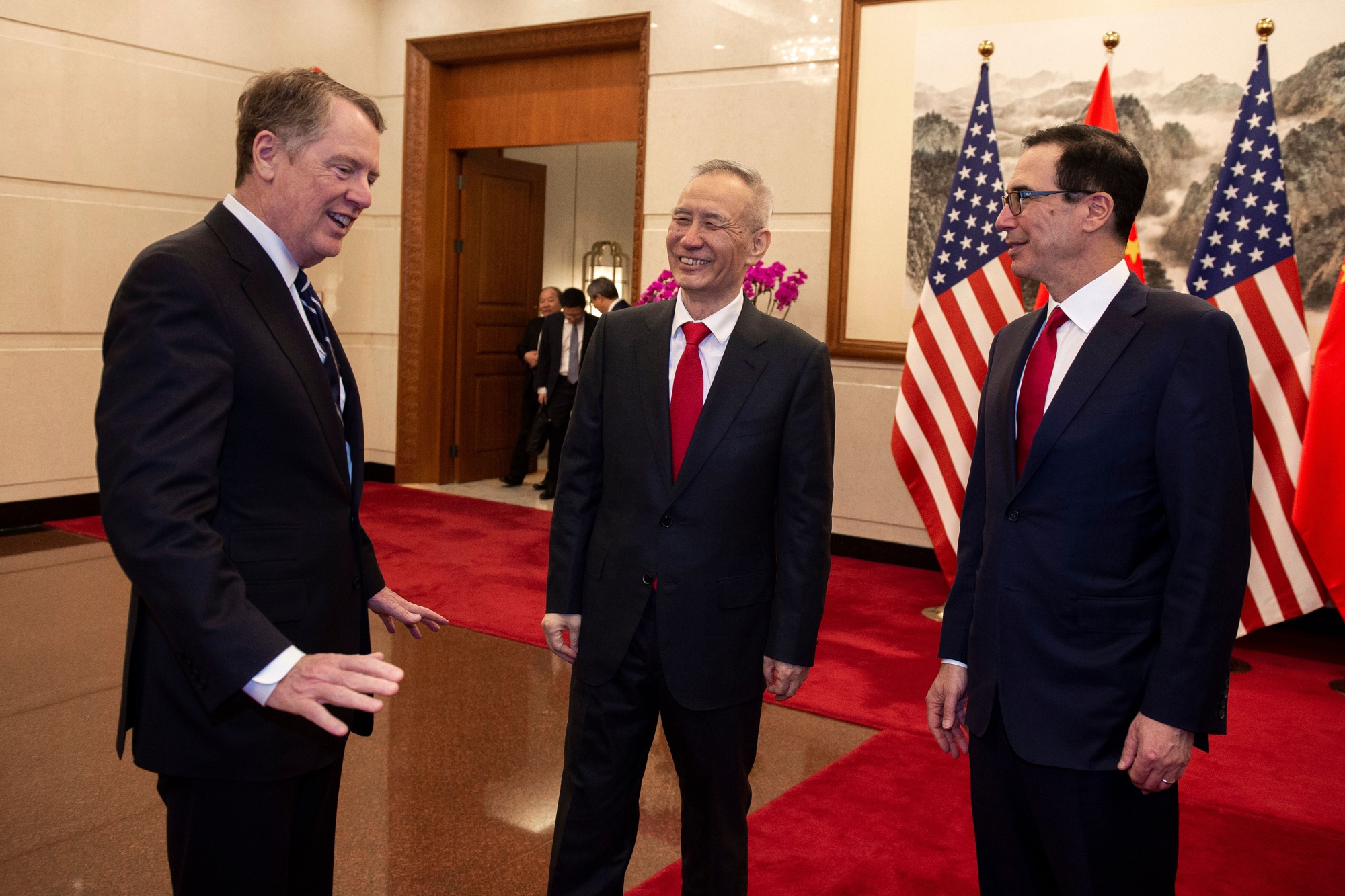Media Report

- CNBC reports: "U.S. and Chinese trade representatives are about to begin their first official in-person meeting since the G-20 truce, but neither side is showing any sense of urgency for a deal. The two-day meeting, set to begin Tuesday in Shanghai, follows a truce reached last month by President Donald Trump and Chinese leader Xi Jinping in their trade war. Expectations for a long-term resolution remain low: Beijing is awaiting Washington's stance on Huawei and Trump believes China may hold out until the 2020 election.'I don't think personally China would sign a deal if I had a 2% chance of losing the election,' Trump said Friday. 'I think China would probably say: "Let's wait. Let's wait. Maybe Trump will lose and we can deal with another dope, or another stiff." White House economic adviser Larry Kudlow told CNBC on Friday he 'wouldn't expect any grand deal' at the meeting in Shanghai."
- The New York Times reports: "The Chinese government on Monday laid down its firm support of Hong Kong's embattled leader and police force but failed to offer any clear solutions after two months of rolling protests that have flared into violence and stoked opposition to Chinese rule. Chinese officials made a strongly worded defense of the local Hong Kong authorities during a rare news conference in Beijing by the government office that oversees policy toward the city. But they failed to address the demonstrators' demands for more accountability in the police force and a greater say in the city's future, which could pave the way for more unrest. 'Hong Kong cannot afford to have instability,' Yang Guang, a spokesman for the Chinese government's Hong Kong and Macau Affairs Office, told reporters. 'Should the chaos continue, it is the entire Hong Kong society that will suffer.'"
- The Wall Street Journal reports: "Proposed cybersecurity regulations by China are vexing U.S. businesses, who see the rules as new barriers to the Chinese market, and loom as a potential sticking point in coming U.S.-China trade talks. The new draft rules and standards, released over the past two months with little fanfare, flesh out an existing cybersecurity law that the U.S. and many foreign businesses already consider draconian. Some forbid certain data from leaving China or slow down the process of sending data overseas, increasing uncertainties and costs. Tough procurement rules could also place foreign products at a disadvantage. If enacted, the measures are likely to hit a swath of American companies, including makers of tech products such as Cisco Systems Inc., International Business Machines Corp., Juniper Networks Inc. and Dell Technologies Inc., as well as those in financial services or the automotive sector that handle data."
Calendar
- 2019-07-28 Expectations Modest as US-China Trade Negotiators Resume Talks in Shanghai
- 2019-07-26 Trump Vows Apple Won’t Get Exemptions from Tariffs
- 2019-07-25 US Navy sails warship through contested waterway as Beijing warns Taiwan
- 2019-07-24 Top U.S., Chinese trade negotiators to meet face-to-face for first time since Trump, Xi meeting
- 2019-07-23 Trump Agrees to Timely Decisions on Huawei as China Talks Near
- 2019-07-22 Chinese Money in the U.S. Dries Up as Trade War Drags On
- 2019-07-21 Chinese Money in the US Dries Up as Trade War Drags On
- 2019-07-19 U.S., China Trade Negotiators Talk for Second Time Since Truce
- 2019-07-18 U.S.-China trade talks continue, in-person meeting may be planned: Mnuchin
- 2019-07-17 Bills targeting China's Huawei introduced in Congress
News
- CNBC US-China trade talks resume in Shanghai with tempered expectations
- The New York Times China Backs Hong Kong Officials, but Leaves Protests for Them to Solve
- The Wall Street Journal China's Cybersecurity Regulations Rattle U.S. Businesses
- Reuters China to conduct military drills in waters near Taiwan
- Bloomberg Tariffs Hurt Everyone, and More Emerging Truths
- Reuters China rejects U.S. lawmaker's comments on HK protests, human rights
- Bloomberg China's U.S. Soybean Purchases Slump to 2004 Low
- The Wall Street Journal Struggling Chinese Bank Gets a Lifeline From State-Backed Investors
- Bloomberg China's Yuan Suddenly Retreats the Most in Three Weeks
- CNBC US companies are increasingly interested in China's big import event despite trade war
- Reuters Cambodia says to increase arms purchases from China
- Axios 2020 Democrats punt on Trump's China tariffs
- Reuters China's Beijing Kunlun to relaunch Grindr IPO
Commentary
- The Atlantic The Discord of the U.S. Stance Against China
- Financial Times Hong Kong is a flashpoint in the new cold war
- The Hill Trump banks on Federal Reserve and China to fuel 2020 economy
- The National Interest China's Giant Spy Drone Just Tailed a U.S. Navy Cruiser
- Bloomberg China Will Be the World's Used Car Salesman
- Forbes China Could Be About To Throw Its Weight Behind Bitcoin
